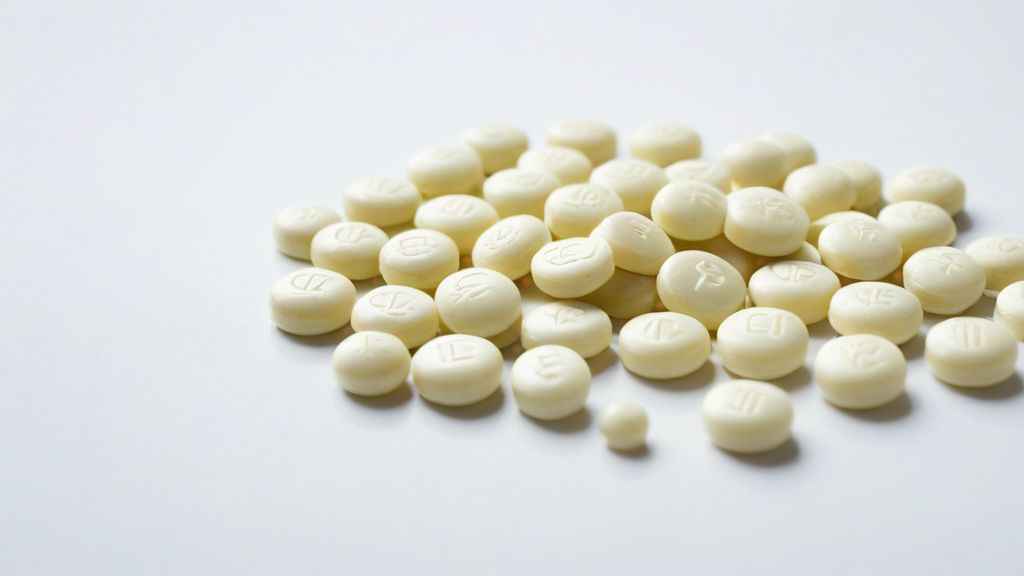Introduction
CBD pills have become increasingly popular as a discreet and convenient way to consume cannabidiol. In this article, we will explore the benefits, uses, and potential side effects of CBD pills. Whether you are new to CBD or a seasoned user, this comprehensive guide will provide you with all the information you need to make an informed decision about incorporating CBD pills into your wellness routine.
What is CBD?
CBD, short for cannabidiol, is a cannabinoid found in high concentrations in the cannabis plant. Unlike its counterpart THC, CBD does not produce psychoactive effects. Instead, it interacts with the neurons in your brain and receptors in your body to produce a range of potential health benefits. CBD has gained significant attention for its potential therapeutic properties and is being studied for its effects on various ailments and disorders.
The Benefits of CBD Pills
CBD pills offer several benefits that make them an attractive option for many individuals. Let’s explore some of these benefits:
Discreet and Convenient
One of the major advantages of CBD pills is their discreet nature. Unlike smoking or vaping CBD, which can draw attention, CBD pills can be taken without anyone noticing. This makes them a great option for those who prefer to keep their CBD consumption private. Additionally, CBD pills are convenient and easy to take, making them suitable for busy individuals on the go.
No Psychoactive High
Unlike THC, CBD does not produce a psychoactive high. This means that CBD pills can be taken without experiencing the intoxicating effects typically associated with cannabis use. For medical users who need to benefit from CBD’s therapeutic properties during the day without impairment, CBD pills provide a suitable option.
Potential Health Benefits
CBD has been studied for its potential to treat a wide range of ailments and disorders. Here are some of the main uses of CBD pills:
1) Pain and Inflammation Relief
CBD interacts with the vanilloid receptors in the brain, which regulate pain perception and inflammation throughout the body. By triggering these receptors, CBD may help reduce pain and inflammation, making it a potential treatment for conditions like fibromyalgia.
2) Neuroprotective Effects
CBD is a powerful antioxidant that protects the body and brain from damage caused by harmful molecules called free radicals. Free radicals can contribute to neurodegenerative disorders like Alzheimer’s disease. CBD’s antioxidant properties may counteract these effects and potentially help prevent or slow down the progression of such disorders.
3) Nausea Relief and Appetite Stimulation
CBD has been found to stimulate appetite and suppress nausea. This can be particularly beneficial for individuals undergoing cancer treatment, as certain disorders and treatments can decrease appetite and increase nausea. CBD may help counteract these side effects and support proper healing.
4) Anxiety and Depression Management
CBD interacts with adenosine and serotonin receptors in the brain, which are involved in anxiety and depression. By activating these receptors, CBD may help reduce anxiety and produce an antidepressant effect. This makes CBD pills a potential treatment option for various mental disorders.
5) Potential Anti-Cancer Effects
Preliminary laboratory studies suggest that CBD may inhibit the growth of cancer cells and even induce cell death. While more research is needed, these findings are promising and highlight the potential of CBD in cancer treatment.
6) Treatment of Psychotic Disorders
CBD may be beneficial in the treatment of psychotic disorders like schizophrenia. By increasing serum anandamide levels in the brain, CBD may help alleviate symptoms associated with these disorders. Unlike some pharmaceutical treatments, CBD pills may offer a more natural and potentially safer alternative.
7) Seizure Control
CBD has shown promise in reducing seizure activity. By stabilizing the brain’s electrical impulses, CBD may help decrease the frequency and severity of seizures. This has been particularly evident in cases of severe epilepsy, such as in the well-known case of Charlotte Figi.
How to Use CBD Pills
Using CBD pills is straightforward. Simply swallow the pill with water, just like any other medication. The dosage will vary depending on individual needs and the specific CBD pill being used. It is always recommended to start with a low dose and gradually increase as needed. It is also important to consult with a healthcare professional before incorporating CBD pills into your routine, especially if you are currently taking other medications.
Potential Side Effects of CBD Pills
While CBD is generally well-tolerated, it can cause some side effects in certain individuals. These side effects may include:
1) Dry Mouth
CBD can suppress saliva production, leading to a dry mouth sensation. Staying hydrated can help alleviate this side effect.
2) Interaction with Medications
CBD can interfere with the metabolism of certain medications in the liver. This can potentially lead to unintended effects or reduced efficacy of the medications. It is crucial to consult with a healthcare professional before combining CBD pills with other medications.
3) Biphasic Properties
CBD may exhibit biphasic properties, meaning its effects can vary depending on the dosage. At lower doses, CBD may produce different effects compared to higher doses. It is important to be aware of this and adjust the dosage accordingly to achieve the desired effects.
Conclusion
CBD pills offer a discreet and convenient way to consume cannabidiol and potentially benefit from its therapeutic properties. With a range of potential uses and benefits, CBD pills have gained popularity among individuals seeking natural alternatives for various ailments and disorders. However, it is essential to consult with a healthcare professional before incorporating CBD pills into your routine, especially if you are currently taking other medications. By understanding the potential benefits, uses, and side effects of CBD pills, you can make an informed decision about whether they are right for you.
